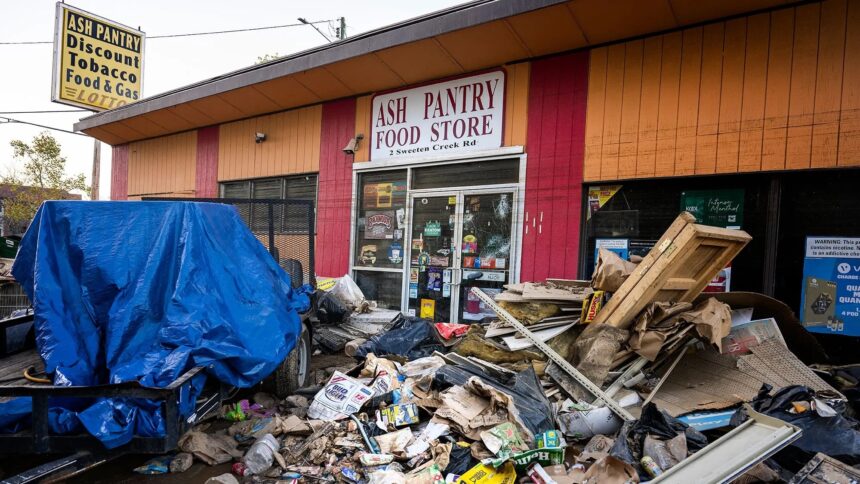In the quiet backstreets of Lunenburg, Nova Scotia, third-generation fishmonger James Whynacht has watched the Atlantic waters transform before his eyes. “Twenty years ago, we could predict the seasons. Now?” He gestures toward empty tanks where Atlantic lobster should be abundant. “Nature’s gone rogue, and my business is paying the price.”
Whynacht represents thousands of small business owners across Canada grappling with climate change’s escalating economic toll. A new report from the Canadian Federation of Independent Business (CFIB) reveals that 68% of small businesses have experienced climate-related disruptions in the past five years, with financial impacts averaging $38,000 annually per affected business.
“We’re witnessing a silent economic crisis,” explains Dr. Miranda Chen, environmental economist at the University of Toronto. “While major corporations can absorb climate shocks through diversification and reserves, small businesses often lack these buffers, making them uniquely vulnerable to extreme weather events, supply chain disruptions, and shifting consumer patterns.”
The vulnerability varies dramatically by region. In British Columbia, wildfire seasons have stretched from weeks to months, devastating tourism operators in interior communities. According to CO24 Business analysis, accommodation bookings decreased by 43% during the 2023 wildfire season in affected regions, pushing nearly 200 small operators to the brink of closure.
Meanwhile, on the prairies, unprecedented drought conditions have created ripple effects beyond agriculture. “When farms suffer, entire rural economies suffer,” notes Alberta Small Business Association director Thomas Rempel. “The hardware store, the coffee shop, the local mechanic—they all feel the pinch when agricultural production declines.”
Urban businesses face different but equally challenging climate pressures. Toronto restaurant owner Maria Delgado saw her insurance premiums triple after flooding damaged her basement storage area twice in three years. “The financial institutions consider us high-risk now,” she told CO24 Canada News. “Between higher insurance and the cost of flood-proofing, we’re looking at over $75,000 in climate-related expenses that weren’t in our business plan.”
What makes climate change particularly insidious for small businesses is its systemic nature. Supply chains meticulously built over decades are unraveling as climate impacts cascade globally. Halifax boutique owner Sarah MacIntyre sources handcrafted goods from Southeast Asia. “Three of my suppliers have permanently closed after typhoons destroyed their workshops,” she explains. “These aren’t just business relationships—they’re irreplaceable artisans with generations of knowledge.”
The federal government has responded with the Small Business Climate Adaptation Fund, allocating $220 million over four years to help businesses implement resilience measures. However, industry advocates argue this barely scratches the surface of needed support. “The application process is cumbersome, and the funding covers a fraction of actual adaptation costs,” says CFIB president Katherine Cuplinskas.
Some businesses are finding innovative paths forward. In Winnipeg, landscaping company Green Horizon has pivoted entirely to climate-resilient designs, installing permeable surfaces and drought-resistant native plants. “We’ve transformed climate challenge into market opportunity,” says founder Wei Zhang. “Our revenues have increased 35% since we specialized in climate adaptation.”
The financial sector is slowly awakening to these realities. Five major Canadian banks have launched specialized climate resilience loan programs for small businesses, offering favorable terms for investments in adaptation infrastructure. Royal Bank’s Climate-Ready Business Program has funded over 300 projects since its 2023 launch, focusing particularly on businesses in high-vulnerability zones identified through advanced climate modeling.
As CO24 Politics reporting has highlighted, provincial responses vary dramatically. British Columbia leads with comprehensive small business climate preparation guidelines and tax incentives for adaptation investments, while some prairie provinces have been criticized for insufficient action despite facing severe climate impacts.
The emerging picture shows climate change as not just an environmental crisis but a fundamental business transformation challenge. For small businesses—the backbone of local economies—the question becomes increasingly existential: adapt rapidly or risk joining the growing statistics of climate-related closures.
As winter approaches, Lunenburg fishmonger Whynacht is investing in temperature-controlled holding systems and diversifying his seafood offerings to include species moving northward with warming waters. “My grandfather taught me fishing traditions, but he couldn’t teach me how to run a business when the ocean itself is changing,” he reflects. “We’re writing the new rulebook as we go.”
What remains to be seen is whether Canada’s economic institutions and policy frameworks can evolve quickly enough to support small businesses through this unprecedented transition, or whether we’re witnessing the beginning of a profound and potentially irreversible restructuring of our local economic landscapes.
















